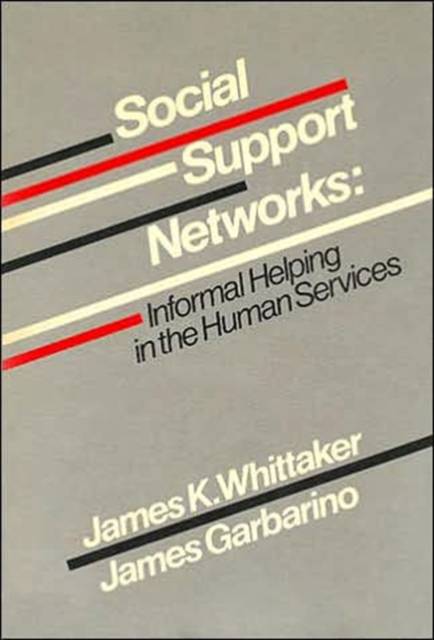
Bedankt voor het vertrouwen het afgelopen jaar! Om jou te bedanken bieden we GRATIS verzending (in België) aan op alles gedurende de hele maand januari.
- Afhalen na 1 uur in een winkel met voorraad
- Gratis thuislevering in België vanaf € 30
- Ruim aanbod met 7 miljoen producten
Bedankt voor het vertrouwen het afgelopen jaar! Om jou te bedanken bieden we GRATIS verzending (in België) aan op alles gedurende de hele maand januari.
- Afhalen na 1 uur in een winkel met voorraad
- Gratis thuislevering in België vanaf € 30
- Ruim aanbod met 7 miljoen producten
Zoeken
€ 60,45
+ 120 punten
Omschrijving
This book offers for the first time a clear conception of what social support networks are, why they are important, how they are identified and sustained, where they fit in an overall framework of human services, and their limits and potential in selected fields of practice. Individual chapters explore: child, adolescent, and family services; daycare and early childhood development; divorced and stepfamilies; schools; delinquency prevention and treatment; mental health; service to the elderly; development disabilities; healthcare and health promotion; and drug treatment. The use of social support networks--extended family, friends, neighbors, and other "informal" helpers--is an idea whose time has come in the human services field. At a time when spiraling costs and popular sentiment weigh against any major expansion of services, it is apparent that a service strategy based primarily on the notion of professional helping delivered on a case-by-case basis, usually in a one-to-one relationship, has serious limitations. Professional response to this major work has been uniformly positive: "[The editors] have assembled a book of considerable importanceàbrilliant in both scholarship and constructionàwill appeal to a broad readershipà"--Gerald Euster, University of South Carolina. "àoffers a much needed balance to the focus on individual and internal dynamics which has characterized social work education for several decades."--Eleanor Reardon Tolson, University of Chicago. "Social Support Networks is a valuable contributionàa unique, original, and authoritative book...an exciting, timely, and definitely practice-oriented book with a strong theoretical and research base."--Anthony N. Maluccio, University of Connecticut. James K. Whittaker is professor of social work at the University of Washington. A former childcare worker, therapist, and administrator in residential childcare, he has been a consultant to governmental and voluntary children's agencies throughout the United States. James Garbarino is Elizabeth Lee Vincent Professor of Human Development in the College of Human Ecology at Cornell University. He was president of the Erikson Institute for Advanced Study in Child Development, Chicago, Illinois, from 1985 to 1994. He is the co-author of Troubled Youth, Troubled Families, also available from AldineTransaction.
Specificaties
Betrokkenen
- Auteur(s):
- Uitgeverij:
Inhoud
- Aantal bladzijden:
- 479
- Taal:
- Engels
Eigenschappen
- Productcode (EAN):
- 9780202360324
- Verschijningsdatum:
- 12/01/1983
- Uitvoering:
- Paperback
- Formaat:
- Trade paperback (VS)
- Afmetingen:
- 167 mm x 226 mm
- Gewicht:
- 666 g

Alleen bij Standaard Boekhandel
+ 120 punten op je klantenkaart van Standaard Boekhandel
Beoordelingen
We publiceren alleen reviews die voldoen aan de voorwaarden voor reviews. Bekijk onze voorwaarden voor reviews.









